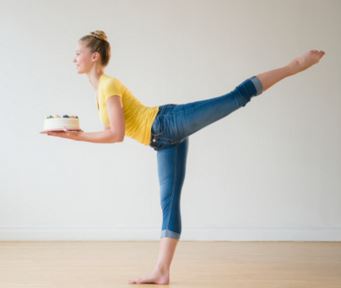Blog
Bridging Dance and Health in Brazil II: Raising Awareness
Author: Clara Fischer Gam
This is the 2nd installation of a post series about the opportunities and challenges of Dance and Health in Brazil - taking the perspective of our fellow Brazilian IADMS members. In a previous post we started delving into the sector of Dance Medicine and Science in this country, a field still in its infancy. Today I am bringing to you a byte-sized overview of our current issues and aspirations to reach information accessibility and community engagement in Brazil.
Read ArticleStretching: Some thoughts on current practice
Authors: Maggie Lorraine and Elsa Urmston on behalf of the IADMS Education Committee
Dancers are often passionate about developing their flexibility, reaching ever-greater ranges of motion (ROM), as choreographers require ever-more spectacular contortions of the body. For example, it’s been observed that the height of the développé in Les Sylphides Nocturne section has increased from 60° to nearly 180°, and of course, different dance styles require different ROM at different joints; Spanish dancers need increased ROM in the shoulders compared to a non-dancing population whereas classical ballet dancers need extensive ROM in the hips. We see a wide range of images and videos online nowadays which see young dancers especially, pushing their body into incredibly contorted positions, often compromising safety and alignment, and possibly leading to increased likelihood of injury as they pursue increased ROM. It’s not as simple as pushing dancers into various positions, as it has been reported that up to 17 factors can affect flexibility, including age, body morphology, genetics, gender, bones, nerves, muscle, ligaments, and connective tissue, so it becomes vital as dance educators that we educate our dancers to look after their body, practise safe stretching activities and understand that achieving optimal flexibility is a complex process.
Read ArticleBridging Dance and Health in Brazil, Part I: The early steps of an emerging field
Author: Clara Fischer Gam
In 2016, all eyes are on Brazil - country that will be hosting the Olympic Games this year. Inspired by this vibrant atmosphere, today we start a post series about the opportunities and challenges of Dance and Health in Brazil – from our members’ perspective!
Read ArticleIADMS Dance Educator Award Update
The 2nd IADMS Dance Educator Award was awarded to Janet Karin, OAM, for her passion and commitment to dance and for her tireless contribution to Dance Medicine and the benefits her work brings to countless dancers. A former Principal Dancer of the Australian Ballet, Janet Karin was previously Principal Dancer of Victorian Ballet Guild and a member of the Borovansky Ballet. She performed in Giselle, Swan Lake, Les Sylphides, Rudolf Nureyev’s Raymonda and Sir Robert Helpmann’s Electra, to name a few, with several roles created exclusively for her. She established her teaching career in Canberra, training many outstanding dancers, choreographers and teachers. She devised her own teaching system, The Karin System, in response to developments in understanding of anatomy, learning processes and teaching methodologies and to changes in the artistic and physical requirements of the dance profession.
Read Article- IADMS 34th Annual Conference - Experience Point of View: Jennifer Milner
- IADMS 34th Annual Conference - Experience Point of View: Joanna Nicholas
- IADMS 34th Annual Conference - Experience Point of View: Erika Mayall
- Beginning ASL for Medical Students & Health Practitioners
- Relative Energy Deficiency in Dance


 BACK
BACK